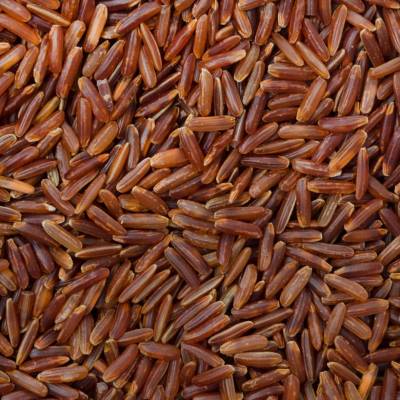DrCarney.com Blog
Should we be Concerned about Phytic Acid?
Inositol hexaphosphate (IP-6) is the scientific name of what is commonly known as phytic acid, or simply "phytate." Phytate is a naturally occurring phytochemical found in grains, legumes, and nuts. It is often referred to as an "anti-nutrient." However, this label is severely misleading according to many, many scientific studies. Did you know that phytic acid has antioxidant properties that help to inhibit a particularly dangerous type of free radical that may contribute to colon cancer? Or how about this fact. A diet high in phytic acid has also been shown to protect against osteoporosis by strengthening bones--which is better for us than the drug Fosamax because phytate doesn't have scary side effects. Further, phytate has been found to reduce inflammation, blood sugar, insulin, cholesterol and triglycerides, kidney stone formation; and protect against diabetes and Parkinson's disease. That's a lot of good benefits for a little phytonutrient with a really big reputation for being bad!
So it makes you wonder, how did phytate get such a poor reputation? The proponents of high-protein, low-carb diets have heavily criticized phytic acid by classifying it as an "anti-nutrient." Phytic acid binds to certain minerals like iron and zinc and thus prevents a very small percentage of these minerals from being absorbed. Concerns regarding phytic acid are unwarranted. Many people are frightened by this natural property, not realizing its many health benefits. If we are otherwise healthy and are eating a well-balanced plant-based diet, there's really no need to be afraid of phytate in our food. Studies demonstrate that this alleged "anti-nutrient" could be a concern but ONLY when LARGE quantities of phytates are consumed along with a NUTRIENT-DEFICIENT diet. My article, "Phytic Acid in Grains? No Problem!" will give you more confidence when planning your meals. Phytate-containing foods like legumes, whole grains and a small amount of nuts/seeds are part of my Starch-Smart® System which will help protect against cancer, osteoporosis, diabetes, autoimmune and cardiovascular disease.
Scroll Down Page to Leave Comments

Got Questions?
We would love to receive your questions. Join in the Starch-Smart Discussions on DrCarney.com by signing up for a free membership to the Dr. Carney Community.
Preview the "Perfect Health Requires Perfect Circulation" Trailer
Blood Flow Boosts Vitality: Do factors that affect artery linings create or ease your aches and pains? Explore the link between impaired circulation and health challenges. How does blood flow relate to health troubles? Learn how Dr. Carney's science-based Starch-Smart® System can improve your circulation and overall health by nourishing endothelial cells at the start of your day.
When you subscribe to the blog, we will send you an e-mail when there are new updates on the site so you wouldn't miss them.




